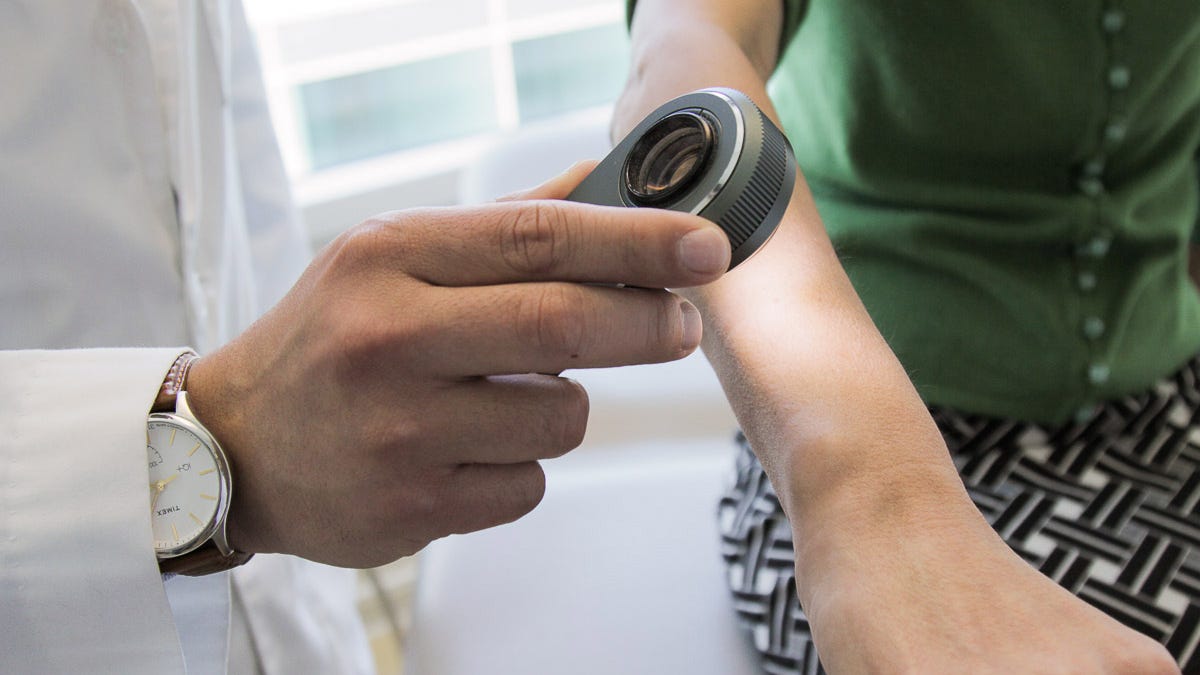Soon, artificial intelligence could check your skin for cancer
Stanford researchers create a machine-learning algorithm that performs just as well as dermatologists when it comes to recognizing the potentially deadly skin disease.
Artificial intelligence that diagnoses skin cancer as well as a dermatologist could one day rest in the palm of your hand.
A team from the Stanford Artificial Intelligence Laboratory set up a machine-learning AI to teach itself to diagnose cancer by looking at skin lesions just as a doctor would during an exam.
The team tested the algorithm against 21 board-certified dermatologists, and it performed just as well as its human counterparts.
"We realized it was feasible, not just to do something well, but as well as a human dermatologist," Sebastian Thrun, an adjunct professor in the Stanford Artificial Intelligence Laboratory, said in a statement. "That's when our thinking changed. That's when we said, 'Look, this is not just a class project for students, this is an opportunity to do something great for humanity.'"
Thrun is perhaps better known as one of the founders of both Udacity and Google X. A paper on the system co-authored by him and his colleagues appeared in the journal Nature Wednesday.
The researchers envision making the algorithm compatible with smartphones, putting skin cancer diagnosis into the hands of just about anyone anywhere.
"Early detection is critical, as the estimated five-year survival rate for melanoma drops from over 99 percent if detected in its earliest stages to about 14 percent if detected in its latest stages," the paper reads. "We developed a computational method which may allow medical practitioners and patients to proactively track skin lesions and detect cancer earlier."
The AI is a convolutional neural network, the same type of system Google uses to wallop masters of the ancient game Go.
The researchers used one of Google's AI systems -- the GoogleNet Inception v3 CNN architecture, which had already been taught to visually identify different objects. But it hadn't yet been trained to tell the difference between a malignant carcinoma and a harmless skin lesion, so the team pulled together a dataset to transform the neural network into a digital dermatologist.
"There's no huge dataset of skin cancer that we can just train our algorithms on, so we had to make our own," said Brett Kuprel, co-lead author of the paper and a graduate student in the Thrun lab. "We gathered images from the internet and worked with the medical school to create a nice taxonomy out of data that was very messy -- the labels alone were in several languages, including German, Arabic and Latin."
The coders collaborated with dermatologists and others in the medical field on the project.
"Advances in computer-aided classification of benign versus malignant skin lesions could greatly assist dermatologists in improved diagnosis for challenging lesions and provide better management options for patients," said Susan Swetter, professor of dermatology and co-author of the paper. "However, rigorous prospective validation of the algorithm is necessary before it can be implemented in clinical practice, by practitioners and patients alike."
Last year, Google announced that it trained an algorithm to spot diabetic retinopathy, which can cause blindness. Fortunately, while we wait for these sort of "doctor's helpers" forms of A.I. to hit hospitals and clinics, we can bide our time by letting the same sorts of systems kick our butts at Go and all sort of other games.
Solving for XX: The industry seeks to overcome outdated ideas about "women in tech." Take a look here.
Crowd Control: A crowdsourced science fiction novel written by CNET readers. Read it here.


